This post may contain affiliate links. Please read our policy page.
Natural fibers, like jute and hemp, stand out as sustainable materials for industrial garages due to their strength, lightweight nature, and biodegradable properties. They require less energy to produce and generate lower carbon emissions than synthetic options. Their excellent thermal insulation prevents moisture buildup, making them ideal for high-traffic areas. Plus, they offer customization for unique garage layouts, appealing to eco-conscious consumers. If you’re interested, there’s more to discover about their versatility and benefits.
The Advantages of Natural Fibers in Industrial Applications
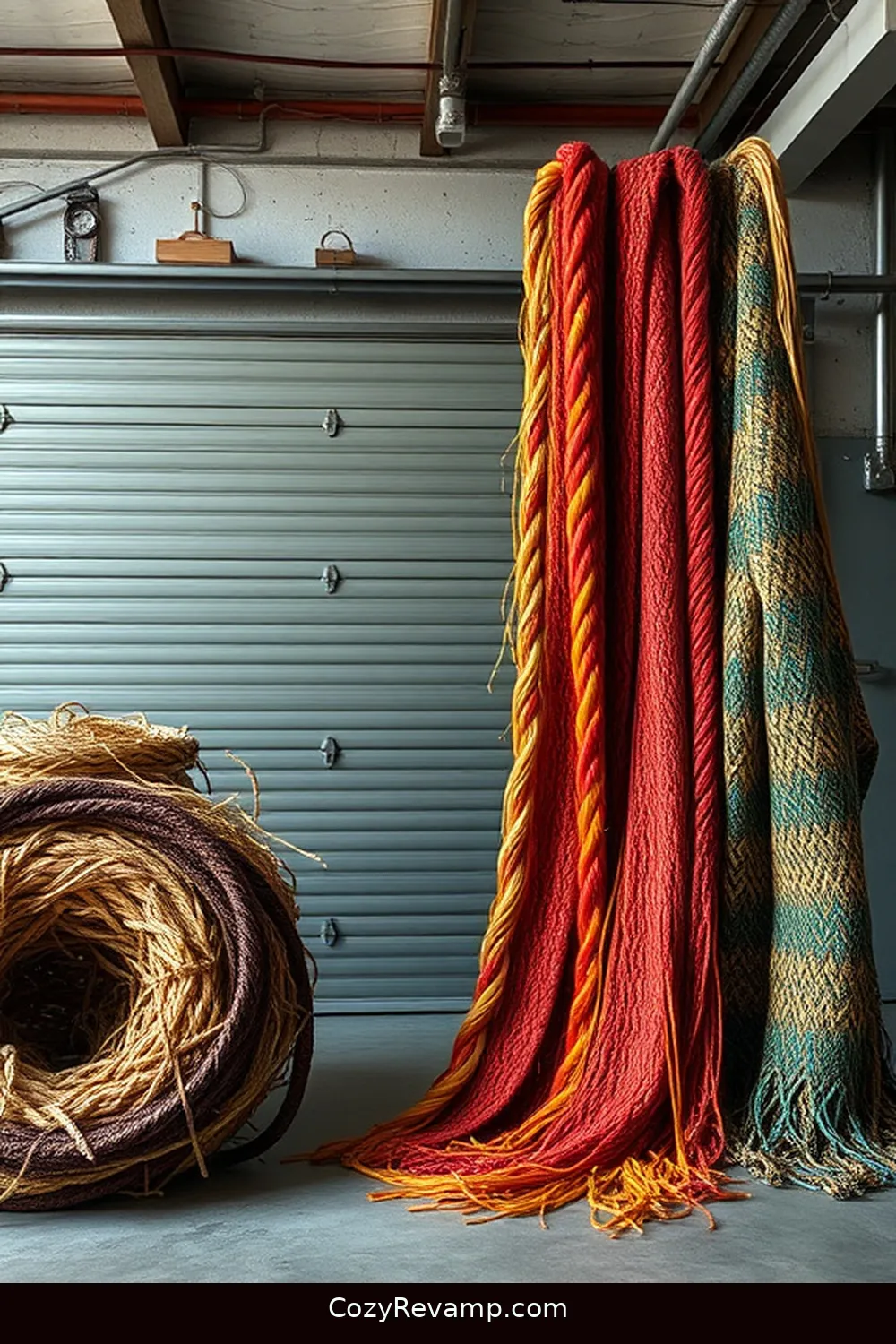
As we explore the benefits of natural fibers in industrial applications, it’s clear that these materials offer a compelling alternative to synthetic options.
Natural fibers, such as jute, hemp, and flax, provide remarkable strength and durability, making them suitable for various industrial uses. They’re lighter than many synthetic materials, which can enhance efficiency in manufacturing and transportation.
Additionally, natural fibers boast excellent thermal and acoustic insulation properties, contributing to a more comfortable working environment. Their inherent biodegradability adds to their appeal, as they align with the growing demand for sustainable materials.
Environmental Benefits of Using Natural Fibers
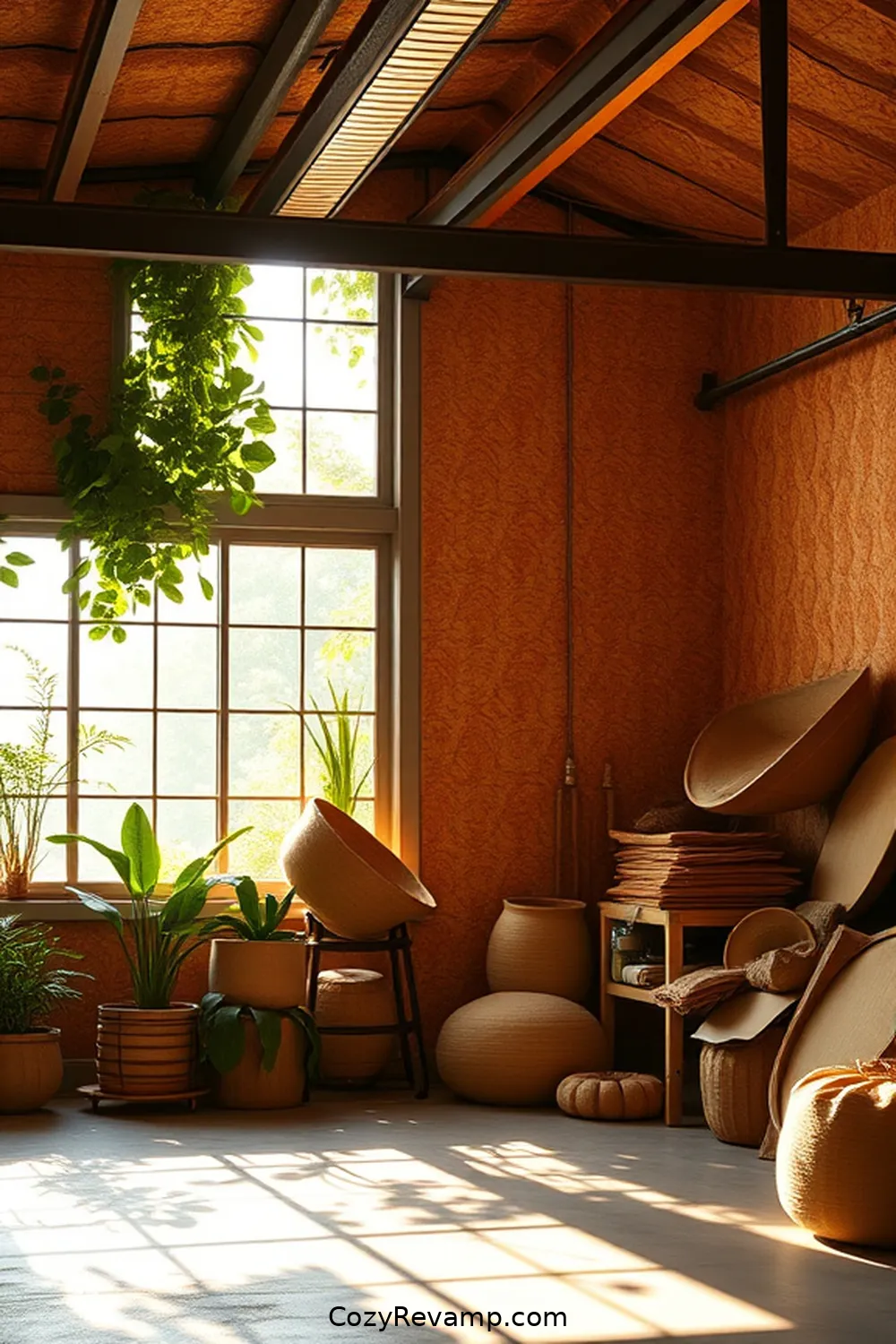
While many industries continue to grapple with the challenges of plastic waste and pollution, I find that the environmental benefits of using natural fibers present a promising solution.
These fibers, derived from renewable sources like cotton, hemp, and jute, decompose naturally, reducing landfill waste considerably. Unlike synthetic materials, natural fibers require less energy to produce, contributing to lower carbon emissions during their lifecycle.
Natural fibers like cotton, hemp, and jute decompose naturally, significantly reducing landfill waste and carbon emissions.
Additionally, they often involve less harmful chemical processing, which protects ecosystems and water quality. By opting for natural fibers, we not only reduce our reliance on fossil fuels but also support sustainable agricultural practices.
Embracing these materials in industrial garages could be a key step towards a greener future, aligning our industrial practices with environmental responsibility.
Recommended Items
Discover our top picks for products and equipment to help you embrace sustainability in industrial garages!
Performance Comparison: Natural Fibers vs. Synthetic Materials
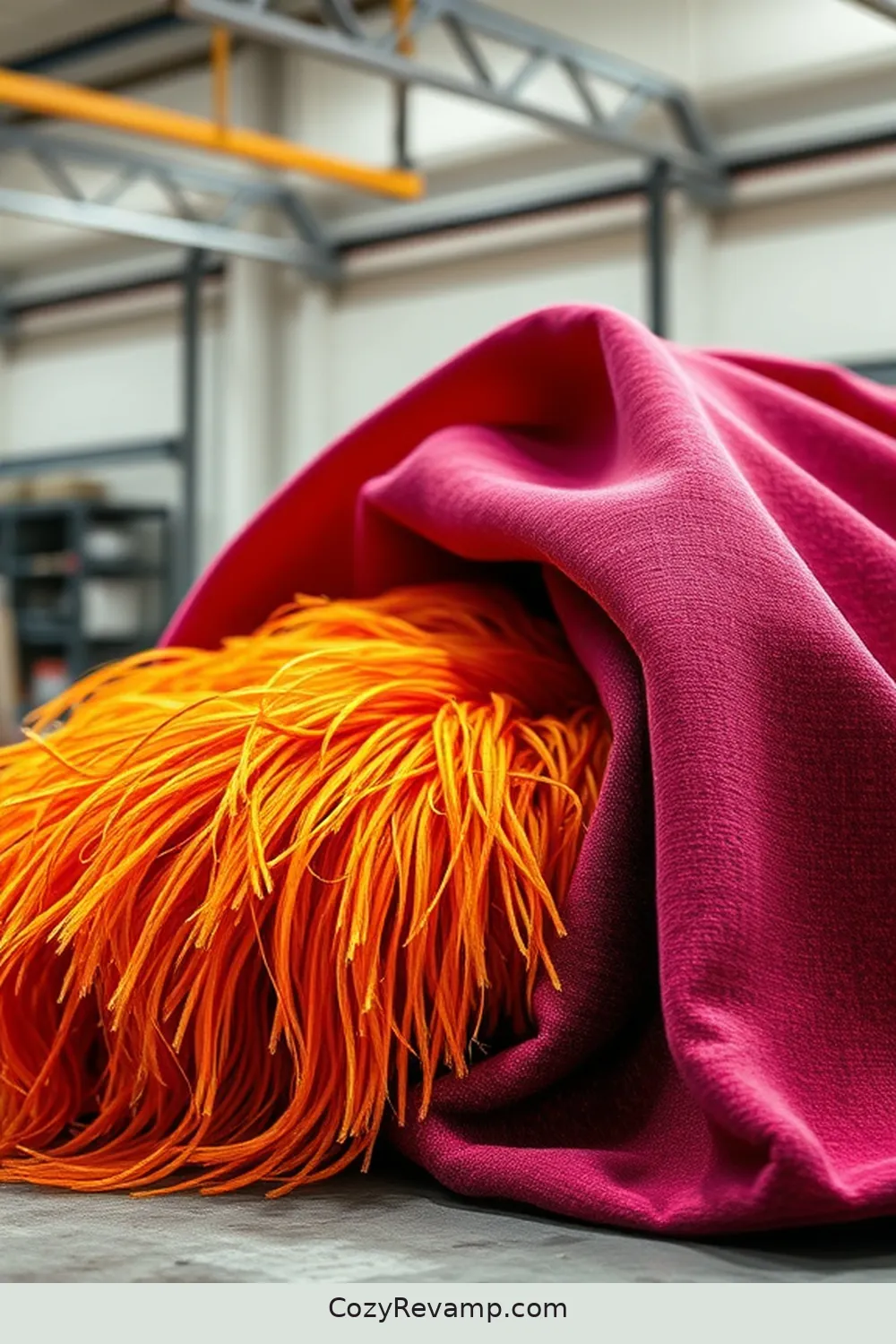
When comparing the performance of natural fibers to synthetic materials, it’s important to contemplate several key factors that influence their effectiveness in industrial garages.
Natural fibers, like jute and hemp, offer excellent durability and strength, often outperforming synthetics in tensile strength and flexibility. They also provide superior breathability, reducing the risk of moisture buildup that can lead to mold and deterioration.
However, synthetics tend to excel in chemical resistance and longevity, which can be essential in certain industrial settings. Yet, I believe the renewable nature and biodegradability of natural fibers make them a compelling choice for sustainability-focused operations.
Ultimately, the best material choice depends on the specific demands of your garage environment, balancing both performance and eco-friendliness.
Task Overview for Sustainable Garage Decor
Cost-Effectiveness of Natural Fiber Solutions
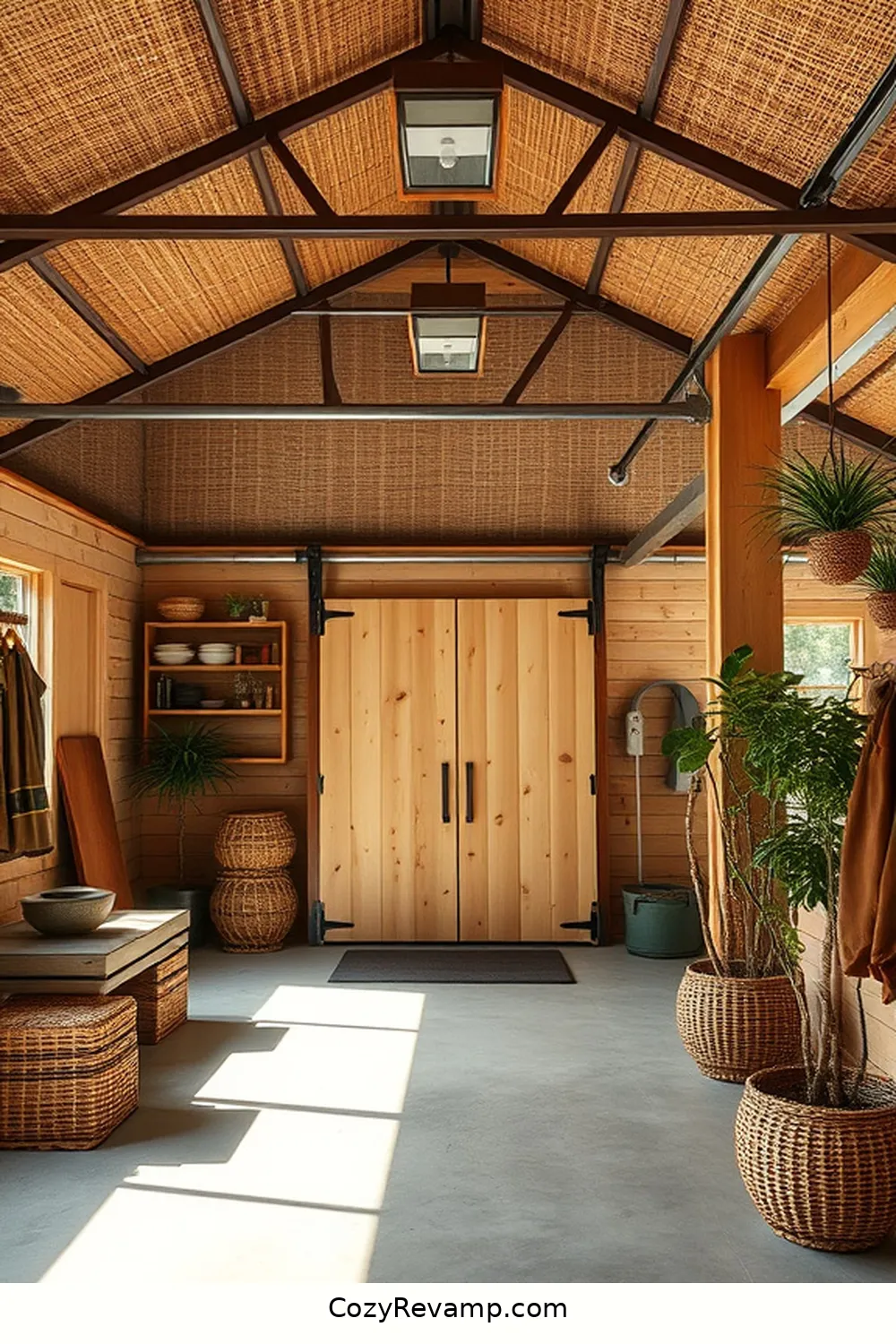
Given the rising costs of materials and the increasing emphasis on sustainability, I find natural fiber solutions to be an appealing option for industrial garages.
Natural fibers, such as hemp and jute, often come with lower production costs compared to synthetic alternatives. They require less energy to manufacture and can be sourced locally, reducing transportation expenses.
Additionally, their biodegradability means that disposal costs are minimal, which adds to their long-term financial benefits. Many businesses are discovering that investing in natural fiber solutions can also enhance their brand image, appealing to eco-conscious consumers.
Versatility of Natural Fibers in Garage Settings
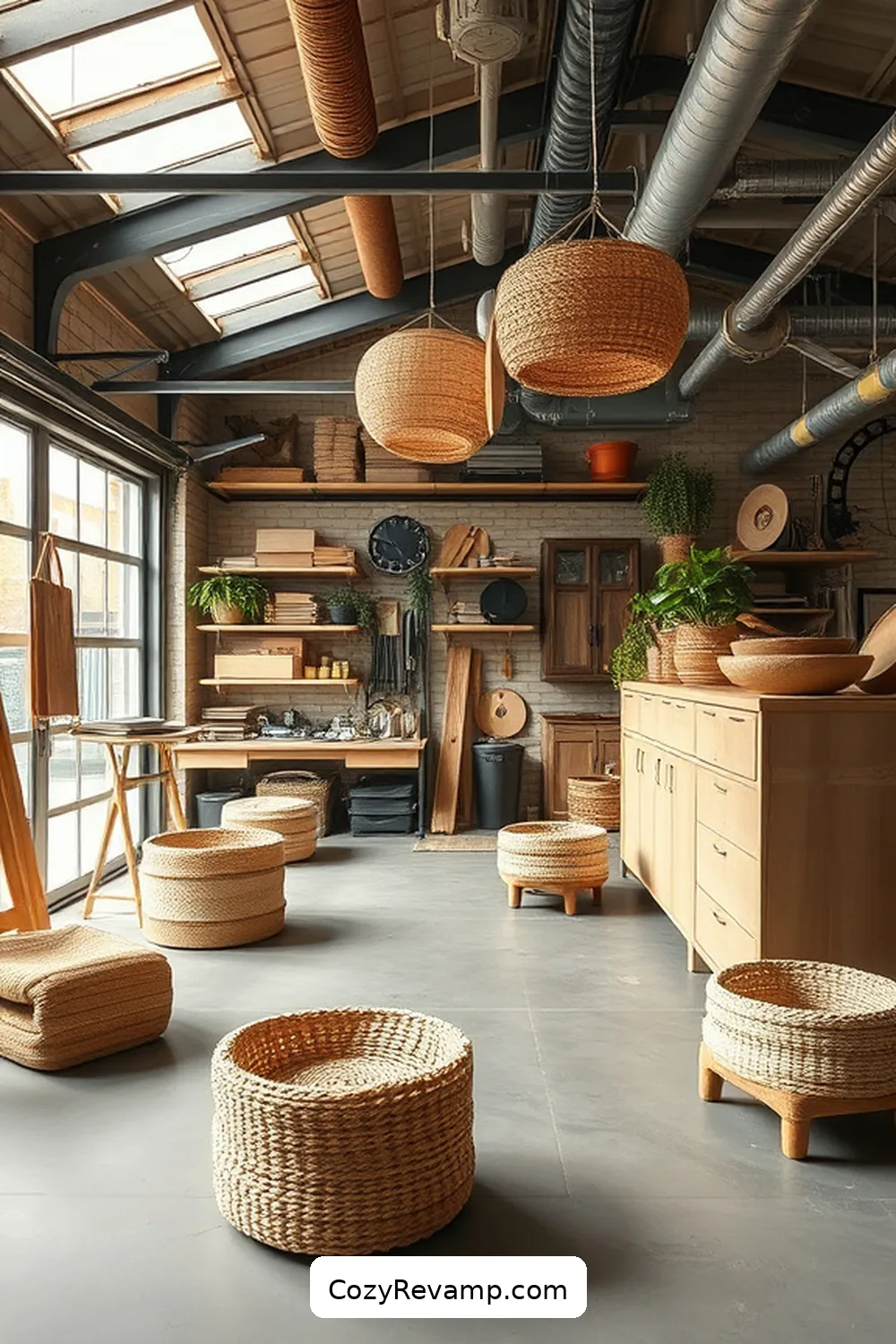
Investing in natural fiber solutions not only cuts costs but also opens up a world of versatility for industrial garages.
These materials adapt seamlessly to various applications, enhancing both functionality and aesthetics. Here are some standout features that showcase their versatility:
- Durability: Natural fibers withstand wear and tear, making them ideal for high-traffic areas.
- Insulation: They provide excellent thermal properties, helping regulate temperature and energy usage.
- Eco-Friendliness: Sourced from renewable resources, they promote sustainability in garage settings.
- Aesthetic Appeal: Natural fibers can enhance the visual appeal of the workspace with their unique textures and colors.
- Customization: They can be tailored to meet specific needs, ensuring a perfect fit for any garage layout.
Embracing natural fibers can truly transform your garage environment.
Future Trends in Natural Fiber Utilization for Industry
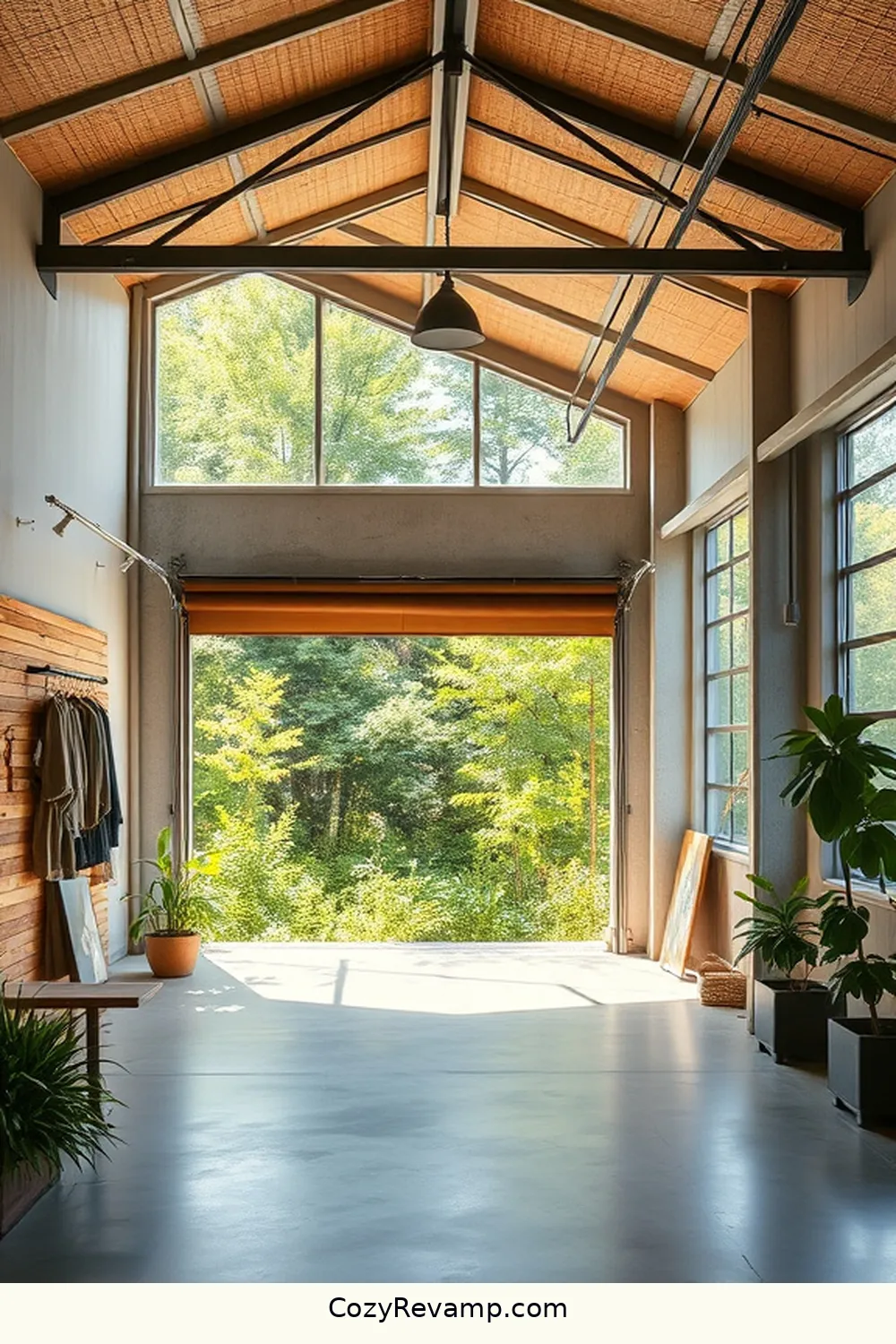
As industries increasingly prioritize sustainability and efficiency, I see a promising future for natural fibers in various applications. Innovations in processing techniques are making it possible to enhance the performance of materials like hemp, jute, and flax, allowing them to compete with synthetic alternatives.
I believe we’ll witness a significant rise in their use in manufacturing components for industrial garages, improving not only sustainability but also energy efficiency. Additionally, the growing awareness of environmental issues will drive demand for eco-friendly materials, pushing companies to adopt natural fibers.









